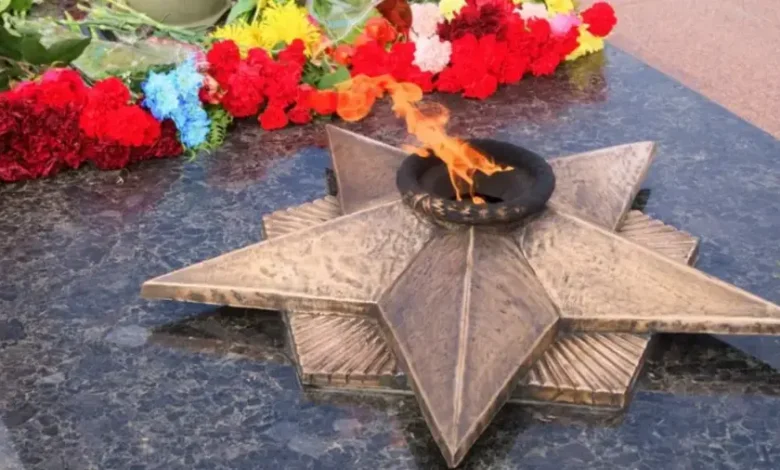May 8 and 9 through the eyes of European media: memory in silence and a parade against the backdrop of war

On May 8, most European countries commemorated the end of World War II, the day Nazi Germany surrendered in 1945. In France, Germany, and Great Britain, the day is filled with silent remembrance, focusing on sacrifice, tragedy, and responsibility. Instead, on May 9, Moscow held a grandiose military parade in honor of Victory Day, which has long since become an element of its ideology. Against the background of the war in Ukraine, the European media this year talk about May 1945 with particular anxiety. There is less pathos and more bitterness in the articles. Memory becomes a mirror in which one can see: the lessons of war have not been fully learned.
The Times – Great Britain. London’s The Times speaks with encouraging words:
“Despite the pessimism that has gripped Britain now, and the brutal conflicts in other countries that continue, it is important to note – the hopes that the world will become better have been largely justified. And let nostalgia for the past be in vogue today, by all indicators in terms of health care, welfare, knowledge, tolerance or personal freedoms, life in Great Britain in 2025 is incredibly better compared to 1945, let alone 1940 or 1935.
Military men and women saved the world from bloodthirsty tyranny. Neither the sacrifice made by those who gave their lives in this struggle nor the optimism of those who survived were in vain. We bow our heads to them again and again, they are all heroes.”
Berliner Zeitung – Germany. On May 9, Federal Chancellor Mertz should fly to Moscow, Berliner Zeitung believes:
“It didn’t have to be attending a military parade on Red Square or sitting in one of the places of honor on the Kremlin tribune next to Xi Jinping, Alexander Lukashenko or North Korean ruler Kim Jong-un. But how about a quiet, unexpected visit to the Monument to the Unknown Soldier or the Anti-Tank Hedgehogs monument in Khimki at the entrance to Moscow – places that remind us of the victims of war, not devoted to her aggrandizement? Mertz would demonstrate a gesture of sympathy without legitimizing Putin’s propaganda.”
Denník N – Slovakia. Bratislava’s Denník N criticizes the Slovak Prime Minister’s intention to attend the military parade in Moscow:
“When Fico appears at the celebration, the army that is currently destroying Ukraine will parade in front of him. He will stand next to the dictator who would most willingly wipe this country off the face of the earth.
… Fico asks which Slovak politicians can boast of having held bilateral talks with the Chinese, Brazilian and Russian presidents in a few hours. But this is his technique. Problems are gathering at home. And he diverts attention from them by playing on the anti-Western sentiments of a large part of Slovak society and pretending to be an authoritative statesman.”
15min – Lithuania. Publicist Edward Lucas writes in his column on the Lithuanian portal 15min:
“Despite pathetic speeches about “eternal glory”, the cult surrounding the Great Patriotic War did not stand the test of time. Until and during the Brezhnev era, the war in the Soviet Union was a taboo topic associated with trauma. And only when the real memories were erased, a longing for a naive and enthusiastic understanding of heroism appeared, and not only in Russia.
Other countries also approached history egocentrically and selectively. It is absolutely correct to celebrate Victory in Europe Day – for the Western Allies on May 8, and on May 9 – for those who celebrate the surrender of Nazi Germany to the Soviet side a day later. But the best way to pay tribute to the dead is to reflect on the mistakes that led to the war.”
The Irish Times – Ireland. What people fought for back then is now under threat again – warns Dublin’s The Irish Times:
“On this special anniversary, when the Second World War is moving from memory to the pages of history textbooks, there are reasons to fear that its lessons are beginning to be forgotten. The largest military conflict on the territory of Europe since 1945 is currently being waged by a Russian dictator against democratic Ukraine.
Countries across the continent are beginning to actively rearm. Demagogues, operating with the rhetoric of blood and soil, began to appear again like mushrooms after the rain. In Germany, judging by the data of a number of polls, the party that openly flirts with Nazi symbols is leading in terms of popularity. And the transatlantic alliance, which became the basis of the post-war recovery of Europe, is getting old.”
El País – Spain. Historian José Manuel Núñez Seixas, in his article in El País, calls on Europeans to develop a culture of common, shared memory of those events:
“In the West, May 8 symbolized a new anti-fascist post-war consensus based on selective forgetting – we are talking about such phenomena as collaboration with the Nazi invaders in France, the Netherlands or Norway, participation in the deportation of Jews or participation in the volunteer units of the Third Reich. For Germany, May 8 was a sad date for a long time. Only in 1985, Richard von Weizsäcker reminded that Germany was freed from fascism on May 8, that is, it is a date that calls for learning lessons from the past.
In Italy, rooted in anti-fascist discourse, the myth of resistance overshadowed any idea of possible personal responsibility. Now that the far right is gaining strength again, we need to give May 8th a European dimension that goes beyond national commemorations.”





